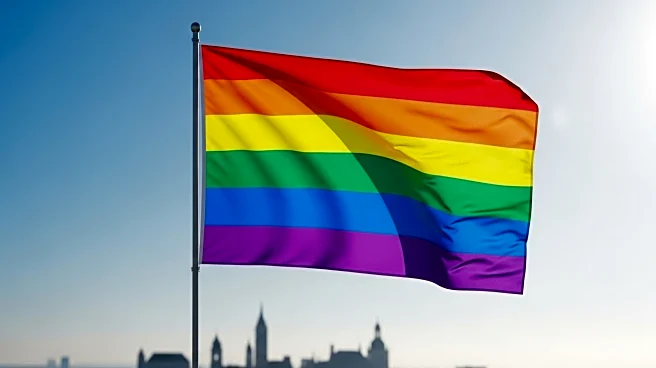What's Happening?
A Pride march in Belgrade, Serbia, condemned police violence against anti-government protesters and supported university students leading demonstrations against President Aleksandar Vucic. The event was marked by a commemorative silence, reflecting the ongoing protests against Vucic's increasingly authoritarian regime. The protests began after a train station collapse in northern Serbia, which was attributed to corruption-fueled negligence. The government has responded with a crackdown, including police brutality and arrests. The Pride march highlighted the struggles of Serbia's LGBTQ+ community, which faces harassment in the conservative country.
Why It's Important?
The Pride march in Serbia underscores the intersection of LGBTQ+ rights and broader political dissent against authoritarian governance. The event highlights the challenges faced by marginalized communities in Serbia, where LGBTQ+ individuals routinely face discrimination. The government's crackdown on protests raises concerns about human rights and democratic freedoms. Serbia's pursuit of European Union membership is complicated by its failure to improve LGBTQ+ rights and address corruption. The march serves as a reminder of the need for social and political reforms to ensure equality and justice for all citizens.
What's Next?
The ongoing protests and the Pride march may increase pressure on the Serbian government to address human rights violations and corruption. The international community, including the EU, may scrutinize Serbia's commitment to democratic principles and minority rights. The government may face calls for policy changes to improve LGBTQ+ rights and reduce police violence. The student-led movement is likely to continue advocating for political reforms and accountability. The situation in Serbia could influence regional stability and its relations with neighboring countries.












